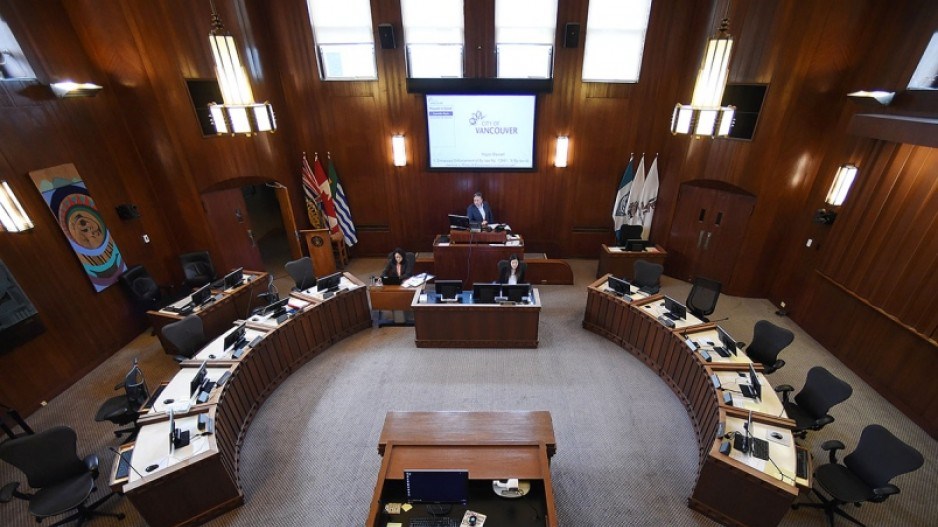With local government meetings now physically closed to the public, civil liberties activists want to know what Victoria will do to ensure local decision-making transparency and accountability.
Under ministerial order 83, the Local Government Meetings and Bylaw Process Order (COVID-19), Solicitor General Mike Farnworth said, “If a council or a body do not allow members of the public to attend an open meeting . . . the open meeting is not to be considered closed to the public.”
The same applies to regional district meetings.
The order’s phrasing, said York University political science professor Dennis Pilon, could be refined.
“The terminology unfortunately evokes a kind of Orwellian verbiage,” he said, refering to the order’s language being reminiscent of slogans from 1984 where author George Orwell used slogans such as “War Is Peace,” “Freedom Is Slavery” and “Ignorance Is Strength.”
That issue aside, the order’s spirit allows normally public meetings to be held using electronic means, something a lot of local governments have yet to utilize. Some do stream online so the public can tune in. Others have moved to meetings through technology that excludes the public.
But, as long as elected officials are there, the spirit is met.
“A member of a council or body who participates in a meeting by means of electronic or other communication facilities under this section is deemed to be present at the meeting,” order said.
But, the order raises questions about how the public can follow how decisions are being arrived at.
Canadian Civil Liberties Association Fundamental Freedoms Program director Car Zwibel said the order is “creating a fiction that meetings closed to the public are, in law, to be considered open.”
And, she said, while this is problematic, it may be in part to deal with the fact that, under B.C.’s Community Charter, there are certain requirements that must be met before a closed meeting can be held.
Whatever the case, she said, municipal governments are going to be increasingly making decisions affecting people’s constitutionally protected civil liberties.
So, she said, the best option is for governments to be livestreaming meetings, something Pilon said is easy in the days of cellphones, allowing the meetings to go live on numerous platforms
“That would allow people to see or hear what is going on,” she said. “These governments are making decisions that have real impacts on our lives.”
She said if that can’t be managed, the next best thing would be to record meetings and post them afterwards.
Pilon wondered why Farnworth didn’t just mandate the broadcast of meetings. “I thought that was weird.”
And, he wonders why attendance of the media as a proxy for the public by some means is left out.
“How are you going to ensure that the public interest is served when the public isn’t there?” Pilon asked.
Zwibel said municipalities should also make meeting agendas public before meetings and solicit input electronically if the public cannot be present.
“It should also go without saying that municipal councils should not be making decisions about issues that require or would benefit significantly from public input in meetings where the public cannot meaningfully participate,” she said.
However, she added, “This may be a moot point because most municipalities will likely be focusing on the COVID-19 crisis and response, but to the extent other business has to be conducted, some things may have to wait until public participation can be meaningful.”
The order applies only for the duration of the provincial emergency, Farnworth declared March 18.
@jhainswo




